Choosing the right university for your international relations studies is a critical decision. A strong program can open doors to a wide range of global careers, from diplomacy and policy analysis to humanitarian work and international business. This article explores the top 10 universities renowned for their exceptional international relations programs, considering factors such as faculty expertise, research opportunities, global networks, and career support. Whether you aspire to work for an international organization, a government agency, or a non-governmental organization (NGO), selecting the right institution is the first step towards achieving your international relations goals.
Navigating the complex landscape of higher education can be challenging. With numerous universities offering international relations degrees, prospective students need a reliable resource to guide their decision-making process. This carefully curated list of the top 10 universities for studying international relations provides invaluable insights into the best programs worldwide. From established Ivy League institutions to innovative global universities, this ranking considers various factors that contribute to a high-quality international relations education, ensuring you have the information you need to make an informed choice about your future.
Harvard University
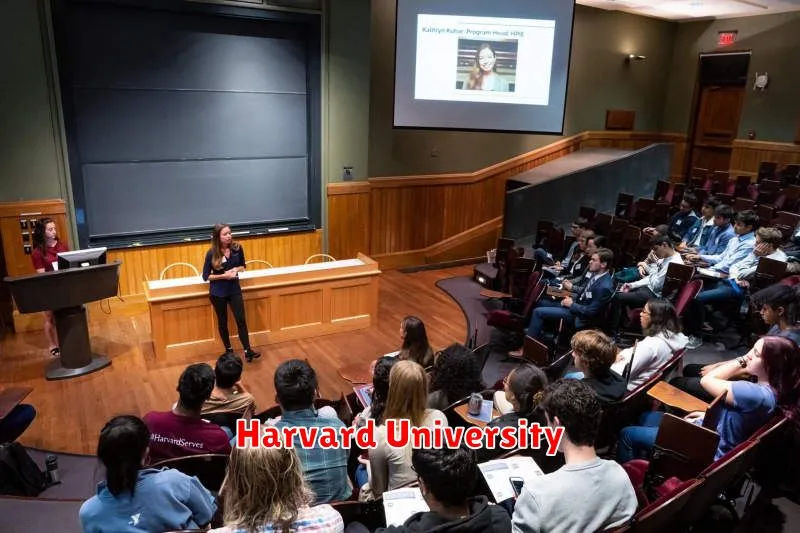
Harvard University, located in Cambridge, Massachusetts, consistently ranks among the top universities globally. Its prestigious reputation extends to its International Relations program, offered through the Harvard Kennedy School.
The Kennedy School provides a rigorous curriculum covering diverse areas such as global political economy, international security, and human rights. Students benefit from a distinguished faculty composed of leading scholars and practitioners in the field.
Key strengths include its emphasis on leadership development, extensive research opportunities, and a vast alumni network influential in international affairs.
Princeton University

Princeton University consistently ranks among the top universities globally and offers a highly regarded program in international relations through its Woodrow Wilson School of Public and International Affairs.
The rigorous curriculum emphasizes a multidisciplinary approach, combining political science, economics, history, and sociology. Students benefit from renowned faculty, including leading scholars and practitioners in the field.
Key strengths of Princeton’s program include its emphasis on policy analysis, quantitative methods, and regional specialization. Graduates often pursue careers in government, diplomacy, international organizations, and academia.
London School of Economics (LSE)

The London School of Economics and Political Science (LSE) is a world-renowned institution specializing in the social sciences. Its Department of International Relations is consistently ranked among the best globally, offering a rigorous and comprehensive education.
LSE’s location in the heart of London provides unparalleled access to major international organizations, think tanks, and government bodies. This proximity creates unique opportunities for networking, internships, and real-world application of academic learning.
Students benefit from a diverse and intellectually stimulating environment, learning from leading scholars and engaging with peers from around the world. The curriculum emphasizes critical thinking, research skills, and a deep understanding of complex global issues.
Stanford University
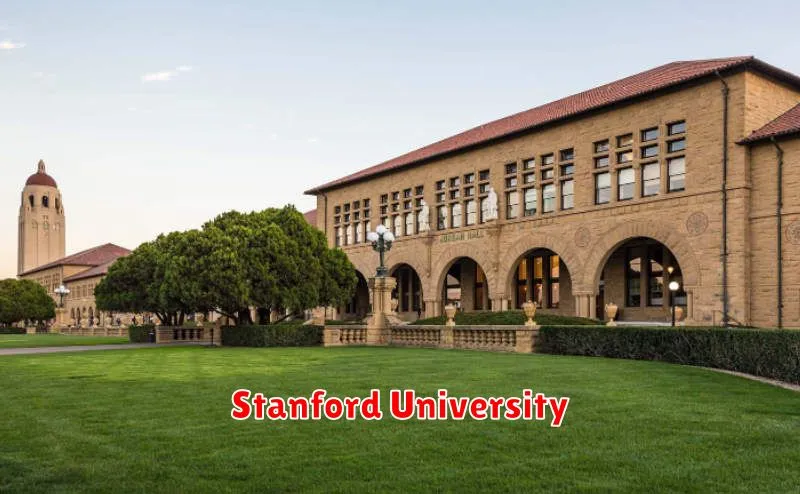
Located in the heart of Silicon Valley, Stanford University consistently ranks among the top universities globally. Its strong international relations program is renowned for its interdisciplinary approach, combining political science, economics, and history.
The university’s Freeman Spogli Institute for International Studies (FSI) provides students with unparalleled opportunities for research and engagement with global issues.
Key Strengths:
- World-renowned faculty
- Cutting-edge research centers
- Extensive global network and opportunities
Columbia University

Columbia University, located in New York City, consistently ranks among the top universities globally for International Relations. Its School of International and Public Affairs (SIPA) offers a rigorous curriculum and unparalleled access to global organizations and policymakers.
SIPA’s prominent faculty includes leading scholars and practitioners in fields such as international security policy, economic development, and human rights. Students benefit from the vibrant intellectual environment of New York City and gain practical experience through internships and research opportunities.
Key Strengths:
- Location: New York City offers unparalleled access to international organizations.
- Faculty: Renowned scholars and practitioners provide expert instruction.
- Practical Experience: Extensive internship and research opportunities.
Sciences Po Paris
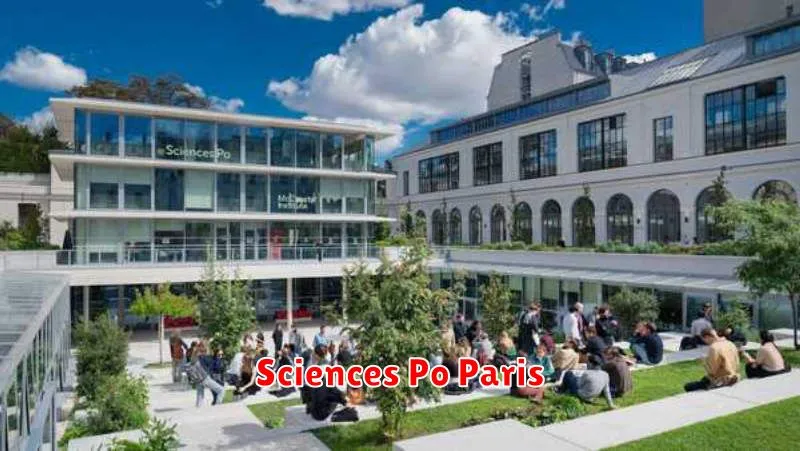
Sciences Po Paris, officially the Institut d’études politiques de Paris, is a highly selective and prestigious university renowned for its focus on social sciences, particularly in the field of international relations. Its multidisciplinary approach combines political science, law, economics, history, and sociology, providing students with a comprehensive understanding of global issues.
The university boasts a strong international focus, with a diverse student body and a wide range of programs taught in both English and French. Sciences Po’s emphasis on practical skills and real-world experience, through internships and research opportunities, prepares graduates for careers in international organizations, diplomacy, government, and the private sector.
University of Oxford
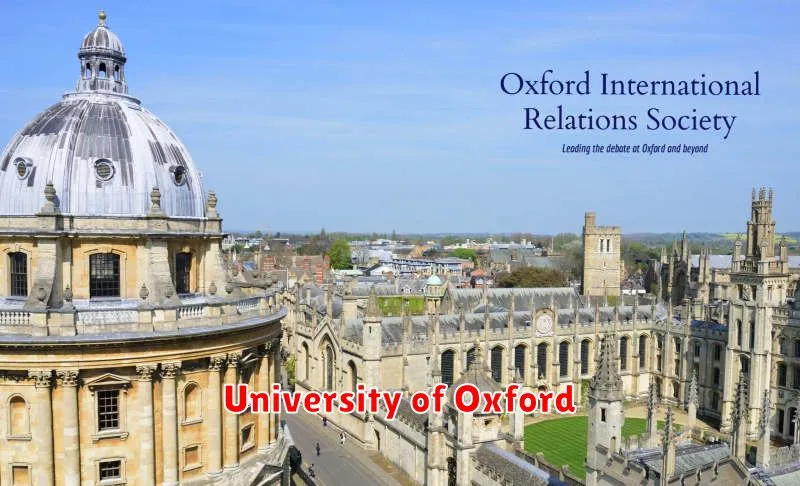
The University of Oxford is a world-renowned institution, consistently ranked among the top universities globally. Its Department of Politics and International Relations (DPIR) offers a rigorous and comprehensive education in international relations.
Students benefit from expert faculty, small tutorial groups, and a vibrant intellectual community. The program emphasizes critical thinking, research skills, and a deep understanding of theoretical and historical perspectives.
Areas of specialization include international security, political economy, global governance, and human rights. Graduates of Oxford’s DPIR program often pursue careers in academia, government, international organizations, and the private sector.
Yale University
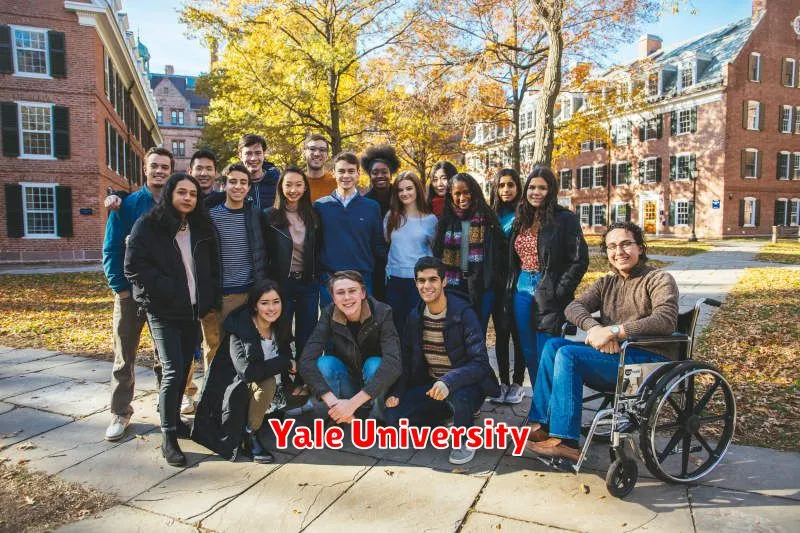
Yale University, located in New Haven, Connecticut, consistently ranks among the top universities globally and is a leading institution for international relations studies.
Its renowned faculty boasts distinguished scholars and practitioners in the field, offering students unparalleled access to expertise and mentorship. The curriculum emphasizes a multidisciplinary approach, integrating political science, economics, history, and law to provide a comprehensive understanding of global affairs.
Yale also offers a wealth of resources for aspiring diplomats and policymakers, including research centers like the Jackson Institute for Global Affairs which focuses on contemporary global issues.
Johns Hopkins University (SAIS)

The School of Advanced International Studies (SAIS) at Johns Hopkins University is a highly-ranked institution for international relations. Its rigorous curriculum and focus on practical training prepare students for careers in diplomacy, policy analysis, and international business.
SAIS boasts a global presence with campuses in Washington, D.C., Bologna, Italy, and Nanjing, China. This allows students to gain diverse perspectives and valuable international experience.
Key strengths include its expertise in economics, regional studies, and international security. Graduates of SAIS are highly sought after by employers in the public, private, and non-profit sectors.
University of Cambridge

The University of Cambridge consistently ranks among the top universities globally and is a premier choice for International Relations. Its Department of Politics and International Studies (POLIS) offers a rigorous and comprehensive curriculum.
Students benefit from a rich academic environment, renowned faculty, and the university’s historical significance in shaping global thought. The program emphasizes both theoretical understanding and practical application in areas such as international security, political economy, and global governance.
Cambridge’s collegiate system fosters intellectual debate and provides strong support networks for students. Graduates are highly sought after by international organizations, government agencies, and academic institutions.

